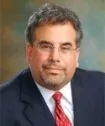On May 11, 2023, the Supreme Court of the United States curtailed the federal government's ability to use the mail and wire fraud statutes to reach an ever-expanding class of fraudulent conduct. The Court unanimously reversed two corruption prosecutions from the Southern District of New York, as affirmed by the Second Circuit. Percoco v. United StatesandCiminelli v. United Statescontinue a trend of limiting prosecutions under the wire fraud statute based on nontraditional, intangible property rights, including prosecutions for "honest services" as codified in 18 U.S.C. § 1346. For decades, the Court has grappled with federal fraud prosecutions creeping further and further from offenses grounded in traditional property interests into more vague, nontraditional property rights. While one such intangible right?honest services fraud?is codified, the courts have struggled to define its contours. The Court's unanimous decisions on May 11 signal that the mail and wire fraud statutes have limits and cannot be used to prosecute all fraudulent conduct in federal court.
Percoco v. United States
Joseph Percoco was convicted of conspiracy to defraud the public of "honest services" under 18 U.S.C. § 1346. Percoco worked in New York state government for Governor Andrew Cuomo. For a short time in 2014, Percoco left government to work on Cuomo's reelection campaign, returning after Cuomo was reelected. While a private citizen, he interceded for some companies in state government, purportedly in return for cash payments. The jury was instructed that it could convict Percoco, a private citizen, if he "dominated and controlled any governmental business" or if "people working in the government actually relied on him because of a special relationship he had with the government."
The Supreme Court rejected Percoco's argument that a private citizen can never be convicted of honest services fraud, but it also invalidated the jury instruction as unconstitutionally vague. Notably, the Court did not proffer any revised standard or instruction, leaving it up to the district courts to craft new instructions in the wake of the opinion. As Justice Gorsuch notes in his concurrence, "we may now know a little bit more about when a duty of honest services does not arise, but we still have no idea when it does." Justice Gorsuch, joined by Justice Thomas, would clearly have invalidated the statute for vagueness.
Indeed, courts have struggled to define the limits of the "honest services" that fall within Section 1346, particularly when charged against private individuals. In Skilling v. United States, for example, the Court limited such prosecutions only to bribery and kickback cases. However, the nature of the relationship or activity that gives rise to such a charge remains unstated. Percoco moves the statute slightly more towards a concrete definition, but its final outlines still remain unclear.
Ciminelli v. United States
In Ciminelli, the Supreme Court unanimously limited the application of the federal wire fraud statute to "traditional property interests."Louis Ciminelli was convicted of wire fraud on a "right to control" theory. The right to control theory allowed for a wire fraud conviction on a theory that the defendant deprived the victim of some necessary information that impacted the victim's right to control its assets. Ciminelli was convicted solely on a right to control theory for his role in a kickback and bid-rigging scheme associated with disbursement of redevelopment funds in New York state.
The Court soundly rejected the theory, holding that the wire fraud statute (aside from the honest services subsection) applied to traditional property interests only. The Court observed that the right to control theory "vastly expands federal jurisdiction without authorization" because when "mere information" is a protected interest, "almost any deceptive act could be criminal." Such a theory implicates wide ranges of fraudulent conduct that is typically reserved to state or civil law. The Court declined to extend the federal reach into such conduct absent a clear statement from Congress.
Conclusion
The federal wire fraud statute is a powerful tool for the federal government, which federal prosecutors have used to reach expanding categories of conduct. On May 11, 2023, the Court sent a clear signal that the wire fraud statute has its limitations and that it is not a catchall for any and all deceptive conduct. The Court's decision in Percoco further provides significant grounds for challenging indictments for honest services fraud, especially against private citizens.
For More Information
If you have any questions about this Alert, please contact George D. Niespolo, Eric R. Breslin, Christopher H. Casey, Melissa S. Geller, Angela J. Benoit, or any of the attorneys in our White-Collar Criminal Defense, Corporate Investigations and Regulatory Compliance Group or the attorney in the firm with whom you are regularly in contact.
Disclaimer: This Alert has been prepared and published for informational purposes only and is not offered, nor should be construed, as legal advice. For more information, please see the firm's full disclaimer.





